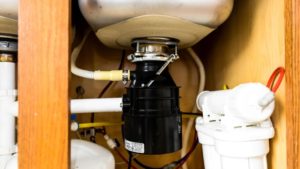
Talk about “Propane Gas”? Everything you need to know about “Propane Gas”
Are you in need of a fast and reliable source of fuel? Have you ever heard of propane gas? Propane gas is a versatile, efficient, and clean-burning fuel that is used for many purposes, from powering your home appliances to heating your outdoor grill. In this article, we will dive into everything you need to know about propane gas, including where it comes from, how it’s made, and its various uses.
What’s Propane Gas?
Propane gas is a hydrocarbon that is part of the liquefied petroleum gas (LPG) family, which also includes butane. It is a colorless, odorless gas that is compressed into a liquid form and stored in pressurized tanks. Propane gas is derived from natural gas processing and crude oil refining. It is a byproduct of these processes and is separated and refined further to produce the propane that we use today.
Where Does Propane Gas Come From?
As mentioned earlier, propane gas is derived from natural gas processing and crude oil refining. In the United States, the majority of propane gas is produced domestically, with the remaining amount imported from Canada and other countries. Propane is transported via pipelines, trucks, and ships to storage facilities and distribution centers where it is sold to consumers for various uses.
How is Propane Made?
Propane gas is produced through the refining process of crude oil and natural gas. During this process, propane gas is separated from other hydrocarbons through a process called fractionation. Fractionation is the process of separating hydrocarbons based on their boiling points. Propane gas has a boiling point of -44°F, which makes it easy to separate from other hydrocarbons.
Once propane gas is separated, it is processed further to remove impurities such as water, sulfur, and other contaminants. The final product is then compressed into a liquid form and stored in pressurized tanks for distribution and use.
How is Propane Made from Natural Gas?
Propane gas can also be produced from natural gas. Natural gas is a fossil fuel that is extracted from deep within the earth’s surface. The natural gas is transported via pipelines to processing facilities, where it is separated into various components, including propane gas.
The process of extracting propane gas from natural gas involves cooling the natural gas to extremely low temperatures, causing the propane to condense and separate from the other components. The propane gas is then purified and compressed into a liquid form for storage and distribution.
Uses of Propane Gas
Propane gas has a wide range of uses in both residential and commercial settings. It is commonly used as a fuel source for heating homes, cooking, and powering outdoor grills. Propane gas is also used in the agricultural industry for crop drying, weed control, and as fuel for farm equipment.
In addition to these uses, propane gas is also used as a fuel source for vehicles. Propane-powered vehicles emit fewer emissions and are more fuel-efficient than traditional gasoline-powered vehicles. Propane gas is also used as a refrigerant in some industries.
Benefits of Propane Gas
There are several benefits to using propane gas as a fuel source.
- Propane gas is a clean-burning fuel that emits fewer emissions than other fossil fuels.
- This makes it a more environmentally friendly option for heating and powering your home.
- Propane gas is a cost-effective fuel source that is readily available and easy to transport.
- Another benefit of propane gas is its versatility.
- It can be used for a wide range of purposes, from heating your home to powering your vehicle.
- Propane gas is also a reliable source of fuel that can be used in all weather conditions, as it doesn’t freeze or clog like other fuels.
- Propane gas is also a safer option for heating your home or powering your appliances.
- Unlike natural gas, propane gas is not toxic and will not harm the environment if it is released into the air.
- Propane gas is also less flammable than other fuels, such as gasoline or diesel, making it a safer option for transportation and storage.
Choosing a Propane Gas Provider
When it comes to choosing a propane gas provider, it’s important to find a company that is reliable and provides excellent service. Look for a provider that has a strong reputation in the industry and offers competitive pricing. Additionally, make sure the provider offers delivery and installation services to make the process as easy as possible.
It’s also important to consider the provider’s safety record and the measures they take to ensure the safe handling and transportation of propane gas. A reputable provider should have a comprehensive safety program in place and adhere to all industry regulations and guidelines.
Propane gas is a versatile, efficient, and clean-burning fuel that has a wide range of uses in both residential and commercial settings. It is derived from natural gas processing and crude oil refining and can be produced domestically or imported from other countries. Propane gas is a cost-effective and environmentally friendly option for heating and powering your home, as well as a reliable and safe fuel source for transportation and other industries.
When choosing a propane gas provider, it’s important to find a company that is reliable, offers competitive pricing, and has a strong safety record. With its numerous benefits and uses, propane gas is an excellent choice for those looking for a fast and reliable source of fuel.







